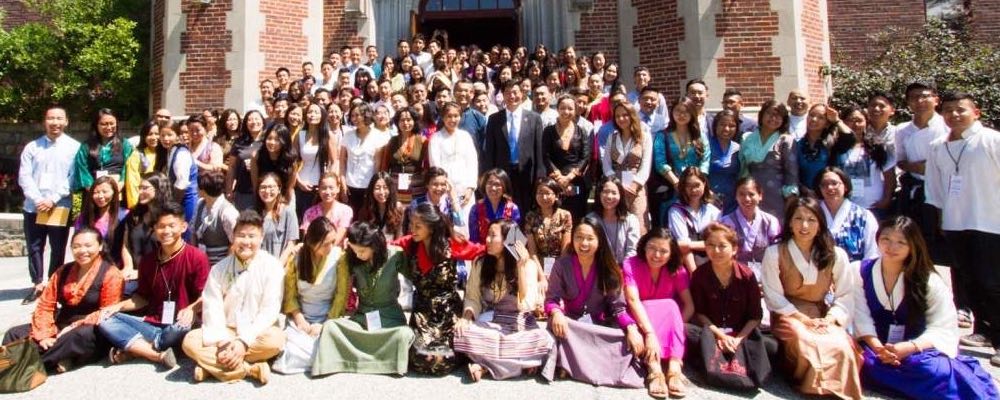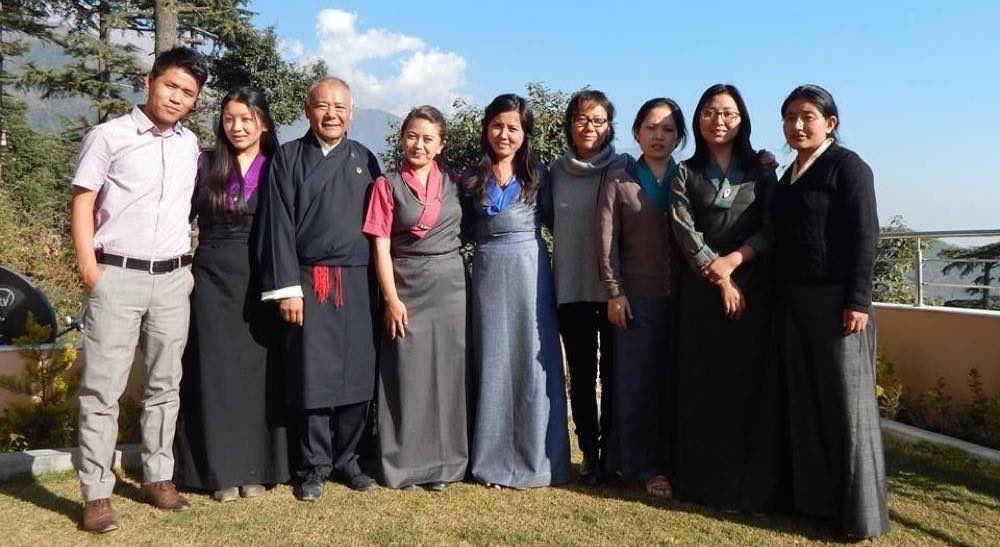


By Ms. Tenzin Nyima, coordinator of Tibet Corps
Giving back to the community is one of the most important things in life. Rabindranath Tagore beautifully says “I slept and dreamt that life was joy. I awoke and saw that life was service. I acted and behold, service was joy.” Since its inception, Tibet Corps has thirty Dhang-shap-pas or volunteers who have participated in the program of which eight are actively serving now. With wide and diverse range of backgrounds and professions viz researcher, writer, nurse, web-designer, accountant, computer engineer and graduates with major in international relations, public health and economics, they have served and are currently serving in different Departments at CTA.
“There is a myriad of favorite things about my experience as a Tibet Corps volunteer. I truly enjoyed the opportunity to get to learn, befriend and encourage my colleagues. As well, the chance to envelop myself in the Tibetan community in exile was a rare and growing experience.” says Tenzin Seldon from Oxford University who served at Department of Information and International Relations. While Dhang-shab-pa Tenzin Yangchen Dongchung who served at Department of Health says,” “Having the opportunity to work in the Health Department through Tibet Corps is something which I valued. My favorite thing about the service was the opportunity to educate over 4000 people on various health conditions prevalent in the Tibetan community.” Isn’t that inspiring? And Denja Chasse from Zurich who is currently serving at DIIR says,” “It’s a wonderful challenge, I’m learning so much about issues that interest and resonate with me. I’m grateful for this opportunity and introduction to my Tibetan heritage”.

In order to make it easier for the applicants who truly want to serve and give to the Tibetan community, some important changes are made in the Tibet Corps rules while applying for Tibet Corps. Service through Tibet Corps are not just limited to the Departments at Central Tibetan Administration but placement of volunteers beyond CTA viz Tipa, Norbulinga, Library, all the monasteries and nunneries in India, Nepal and Bhutan, under Department of Religion and Culture, Delek Hospital, Ngeonga school in Dehradun, Men-Tse-Khang and various hospitals across different Tibetan Settlements under Department of Health, different schools in India, Nepal and Bhutan under Education Department are applicable now. For documents required to submit during the Tibet Corps application procedure, earlier recommendation letter either academic or professional are mandatorily needed while only reference letter from a recognized Tibetan Association and Office of Tibet are considered besides giving their certificates of high school and college. And for the time commitment, it differs from three to six months which can be extended to a year depending on volunteer’s circumstances and the concerned Departments needs. Three months minimum service was required however it has now changed to one month as the service of qualitative one month contribution makes a big difference in strengthening the work of the specific section or desk of the department.
Volunteers are expected to work the same hours per day as the regular staff however there are exceptions when they have to go for Tibetan language or Buddhism classes in the morning or during the working hours for an hour or two as long as the work is done properly. As it is said that quality matters more than quantity! Emergency or medical leave can be taken depending on their need by asking and seeking the approval of the concerned Supervisor of the volunteer serving at the respective Department. Volunteers are normally not paid but monthly stipend and certificate of recognition for the volunteers signed by Sikyong will be given to them after their service for appreciation and acknowledgement.
Isn’t it the time for us to get connected and give back to the society which has given us opportunities to learn and grow, especially for us Tibetans having been and being in such a critical situation? The purpose of life is not just to earn and live a living but also trying to contribute and make a small difference in the community you live and belong to. That’s why we still remember what Winston Churchill says, “We make a living by what we get, but we make a life by what we give”. Don’t we?
Originally published on August 1, 2014 by Tibet.net (link)
